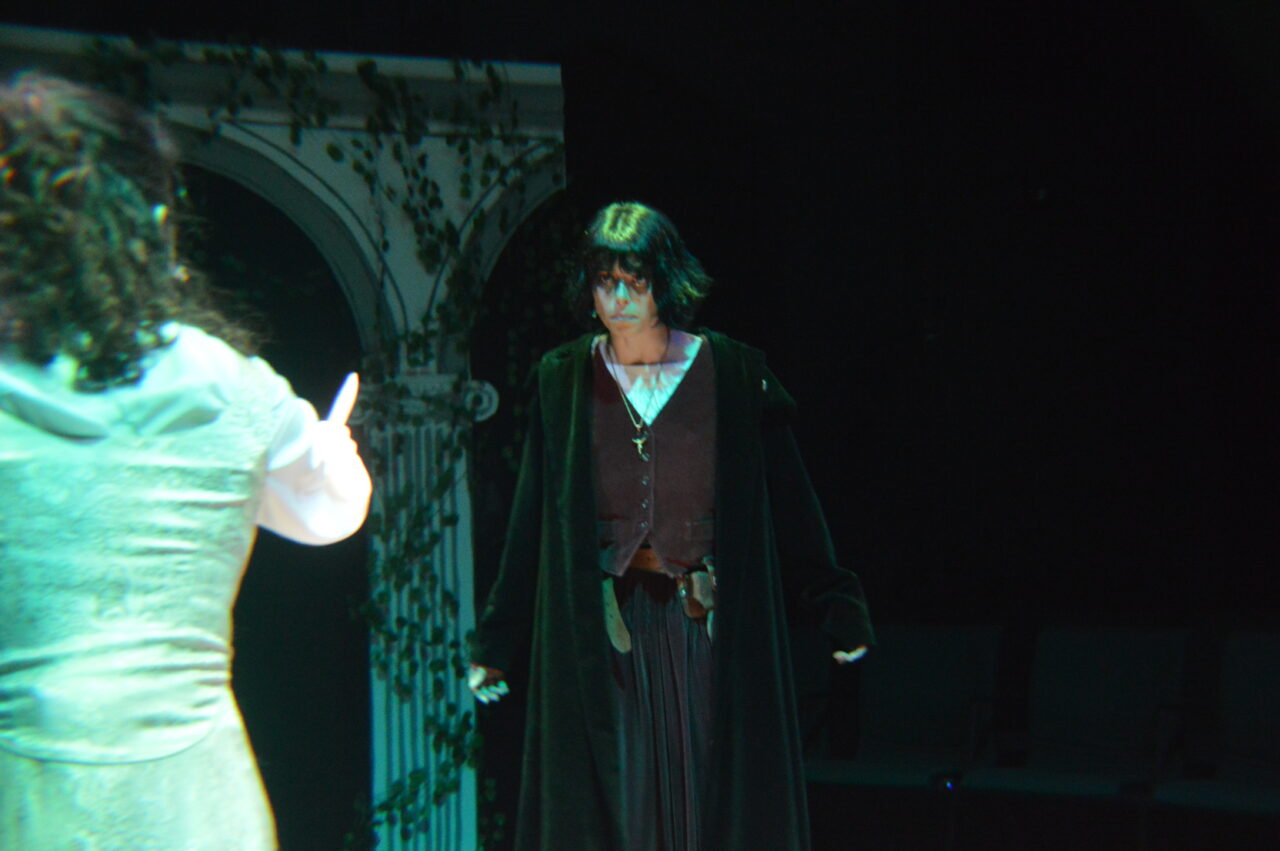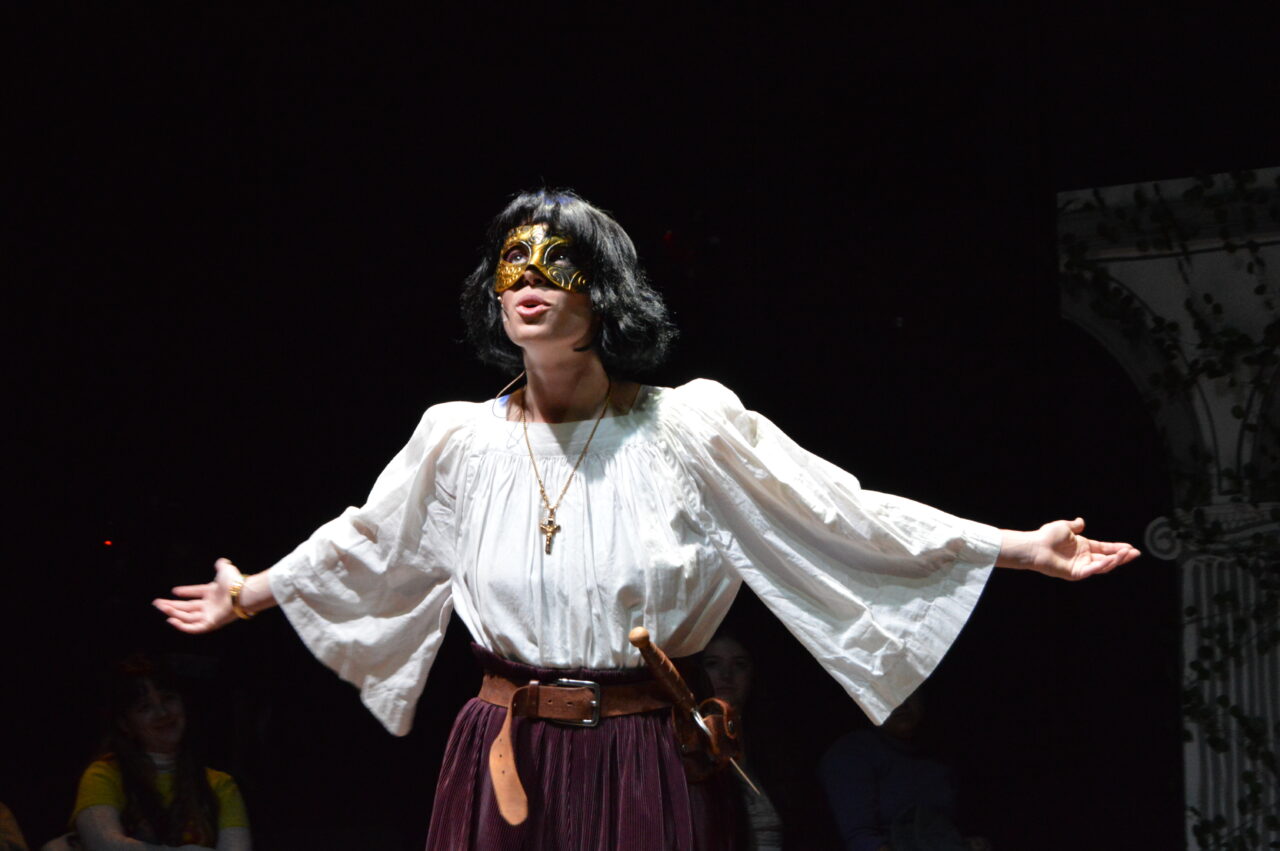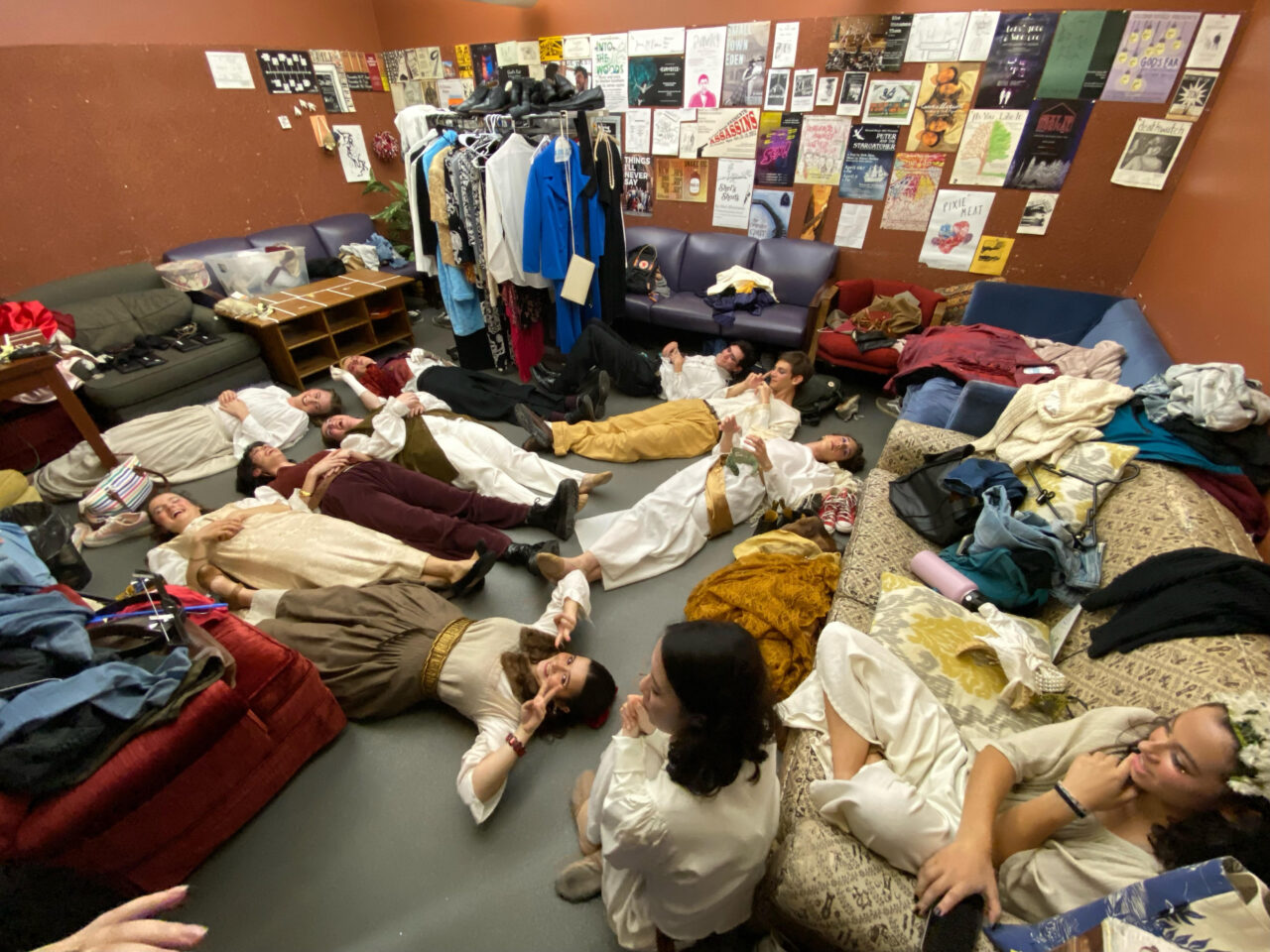Olivia Snow’s ’25 neo-Shakespearean drama premieres in the 92 Theatre

By Maia Bronfman ‘24
As the male love interest in Olivia Snow’s ’25 neo-Shakespearean drama, Lena Weiman ’25 said she had to learn to be a rake, and then to be a dead rake. Having never before in her life been a rake or dead, Weiman said she relied on the dialogues with her co-actors to inhabit the character of Claudio de’Bossi.
Masquerade, the five act play which premiered in the 92 Theatre on November 11, was first imagined by Snow in her freshman year of high school. She read King Lear, A Midsummer Night’s Dream, Hamlet and other Shakespeare all while the idea remained stored in her notes app. During her senior year, she wrote the script.

In iambic pentameter, Snow tells the story of a betrothal organized by families in conflict, of children who mock each other. Speaking to God but at the mercy of fairies, the children, Claudio and Clara, unknowingly fall in love while masked.
In Rupert Holmes fashion, but disguised by fairy magic rather than the anonymity of a personal ad in the paper, they organize a meeting to discover their mystery love. In Shakespearean fashion, Clara kills Claudio.
Virginia, Claudio’s sister who keeps a semi-passionate and semi-secretive romance with Federik the fruit-vender, in is love with Clara throughout. She is left to mourn her brother and her amour, who the fairies turn into a flower.
Snow said she initially wrote the Virginia and Federik love as more genuine, but it felt unsatisfying. Snow spoke to Feminist, Gender and Sexualities Professor Victoria Pitts-Taylor who suggested that Virginia and Clara’s relationship be romantic.
“It felt satisfying and just, not gratuitously sad,” Snow said about the edited romance. “And it means more when the script represents you. I wanted to write a queer character in to represent the cast and to add an extra layer. It was more complex and dynamic, more meaningful.”
Snow also flipped the Shakespearean norm of having male actors play women, by having Weiman play Claudio. Weiman, who said she often gets type-cast as a comedic man, dyed her hair from pink to black for the role. She said she would have shaved her head if it had been necessary.
“She was a very customizable individual,” Snow said. Off duty, Weiman styled her French Medieval bob with yellow eyeshadow and a choker of pearls and spikes. During the play it was pink eyeshadow and a weighty cross necklace, gathered by Snow during weeks of wandering through the costume bunker under the Center for the Arts.
Weiman said the play’s imagery was androgynous yet minimalist and the characters spoke to God while interacting with fairies. What Weiman said was anti-realism and an extreme suspension of disbelief, Snow called juxtaposition.
In Shakespearean form, Snow also wove popular culture throughout the script. She referenced Heathers, Beauty and the Beast, Harry Potter, Corpse Bride and Vincent Van Gogh among others.
While writing Snow consulted a panel of post-it notes and accumulating computer tabs, websites about Shakespearean insults, a thesaurus, a Shakespeare translator, videos of confessions and 30 videos on how to hold a dagger properly. Because the pommel is weighted, it is better to stab downwards, to have gravity as an aid, Snow said.
Snow was learning how to stab to learn how not to stab, to instruct Maya Gray, the actor who played Clara, for the murder scene.
“I’ve played a lot of dead bodies,” Weiman said, “but I didn’t realize how long I would have to lie there, about 15 minutes. Stillness is harder than I thought.”
As with other plays she’s been in, Weiman said she “did her job and hoped it would come together at the last minute.” She had to figure out how to die slower, on advice from the makeup artist, and memorized her lines only four days before the show. A bruise grew on her butt from repetitious falls while rehearsing Claudio’s murder.
Only five of 16 roles were played by actors from the original cast created in the spring, and Snow had to go on during the second performance.

During performance weekend the cast had to lie together on the floor to ground themselves, to relieve stress. Weiman called in “floor time.”
During the show Snow watched people cry and gasp and clutch their hearts.
“It sat in my brain for so long,” Snow said, “it was amazing to having people experience it.”

